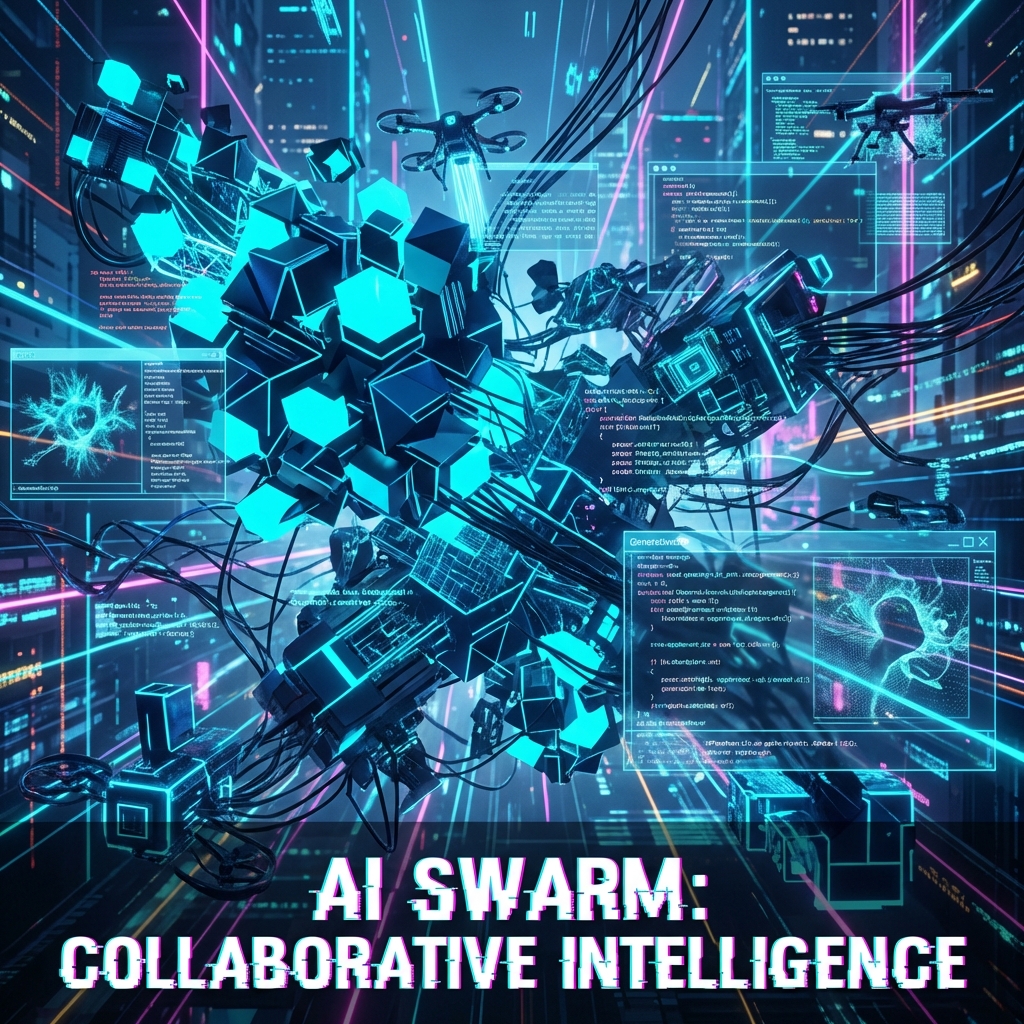OpenAI Codex: The Ultimate AI Coding Sidekick

Introduction: OpenAI's Codex – A New Era for AI Coding Agents
There’s a lot of excitement in the coding community right now, and for good reason. OpenAI just released Codex, and it’s much more than your typical code completion tool. Imagine it as a smart software engineering partner, ready to help you write code, fix issues, and even think through the logic. Whether you prefer cloud-based tools like ChatGPT or working directly in the command line, Codex is aiming to redefine how developers approach their work. It’s looking like a real game-changer for productivity and could fundamentally shift how we create software.
What's the Big Deal About Codex?
OpenAI isn’t just iterating; they’re aiming for a leap. Codex, powered by the new “codex-1” model (a souped-up version of their o3 AI), is designed to be an active participant in your development lifecycle.
Meet the Cloud Agent & CLI: Codex in Action
Integrated into ChatGPT for Pro, Team, and Enterprise users, this version of Codex can tackle complex tasks in its own sandboxed environment. Give it a natural language prompt, and it can:
- Write new features from scratch.
- Answer questions about your existing codebase.
- Hunt down and fix bugs.
- Even propose pull requests for your review.
It reads your files, runs tests, and even shows its work with logs and outputs, so you know what it’s been up to. Task times can range from a minute to half an hour, depending on what you throw at it.
And for those who live in the command line, OpenAI has unleashed an open-source Codex CLI. This “lightweight coding agent” brings AI smarts directly to your local machine. Key perks include:
- Local Power & Privacy: Your code stays on your machine unless you say otherwise.
- Terminal Efficiency: Interact with natural language without leaving your favorite environment.
- Open Source Goodness: Transparency, community contributions, and even API grants for cool projects. It defaults to the speedy o4-mini model but can be configured for others.

Smart Approval Modes: You Stay in Control
A standout feature of the Codex CLI is how it handles permissions, giving you control over its autonomy:
- Suggest (Default): Codex can read files but needs your thumbs-up for every edit and every command. Perfect for cautious exploration.
- Auto Edit: It can read and write to files automatically, but you still approve any shell commands. Good for refactoring when you want to watch for side effects.
- Full Auto: Codex gets to read, write, and run commands on its own, but don't worry – it's in a sandboxed, network-disabled environment scoped to your current directory. Ideal for bigger tasks like fixing a broken build while you grab a coffee.
Plus, it’ll warn you if you’re about to go Auto Edit or Full Auto in a directory not under version control – a nice safety touch.
What Makes Codex Different?
Beyond just generating code, Codex brings some clever innovations:
- Context is King with .MD Files: You can guide Codex with AGENTS.MD files in your cloud repo or a layered system of codex.md files for the CLI (global, repo-level, and directory-specific). Think of these as cheat sheets for the AI, telling it about your project's quirks, testing commands, and coding style. This leads to much more aligned and useful output.
- Safety and Transparency: The cloud agent shows its work with citations and logs. The CLI has its approval modes and sandboxing. OpenAI also states Codex will refuse to build malicious software.
- Human-Like Code: The codex-1 model is trained to produce "cleaner patches ready for immediate human review," aiming to match how human developers write and think.
How Codex Could Shake Up Your Workflow
Codex isn’t just about speeding up typing; it’s about changing how you work. Imagine:
- Accelerated Development: Getting features prototyped or bugs squashed much faster.
- Better Code Quality: Using Codex to generate documentation, comments, and summaries, making codebases easier to understand and maintain.
- Streamlined Collaboration: AI-proposed pull requests could make code reviews more efficient.
OpenAI’s Josh Tobin envisions these agents as “virtual teammates” that can take on tasks that currently eat up hours of human engineer time. This could free you up for more complex problem-solving, architectural design, and innovation. Of course, working effectively with an AI teammate will mean honing skills like prompt engineering and critically evaluating AI-generated code.
Getting Your Hands on Codex
The cloud-based Codex agent is rolling out to ChatGPT Pro, Team, and Enterprise subscribers now, with Plus and Edu users on the “coming soon” list. The Codex CLI is open source and installable via npm. OpenAI plans to introduce rate limits for the cloud version, with options to buy more credits, signaling a value-based approach for heavy users.
This launch is a big step in OpenAI’s shift towards becoming a product-focused company, especially in the enterprise AI space. They’re betting big on “agentic software engineering,” where AI takes a much more active role.
The Human Element: Still Crucial
Even with AI this advanced, human oversight is key. OpenAI stresses that you should always review and validate any code Codex generates. It’s an assistant, not a replacement for your expertise. Ethical considerations and security are also front and center, with built-in safeguards and an ongoing focus on safety.
The Dawn of a New Coding Era?
Codex is more than just a cool new tool; it’s a glimpse into a future where AI is deeply woven into the fabric of software development. It could democratize complex coding tasks, empower more people to build software, and undoubtedly spur even more innovation in AI-powered developer tools.
The big question now is: How will an AI coding partner like Codex transform your world? The journey is just beginning.


